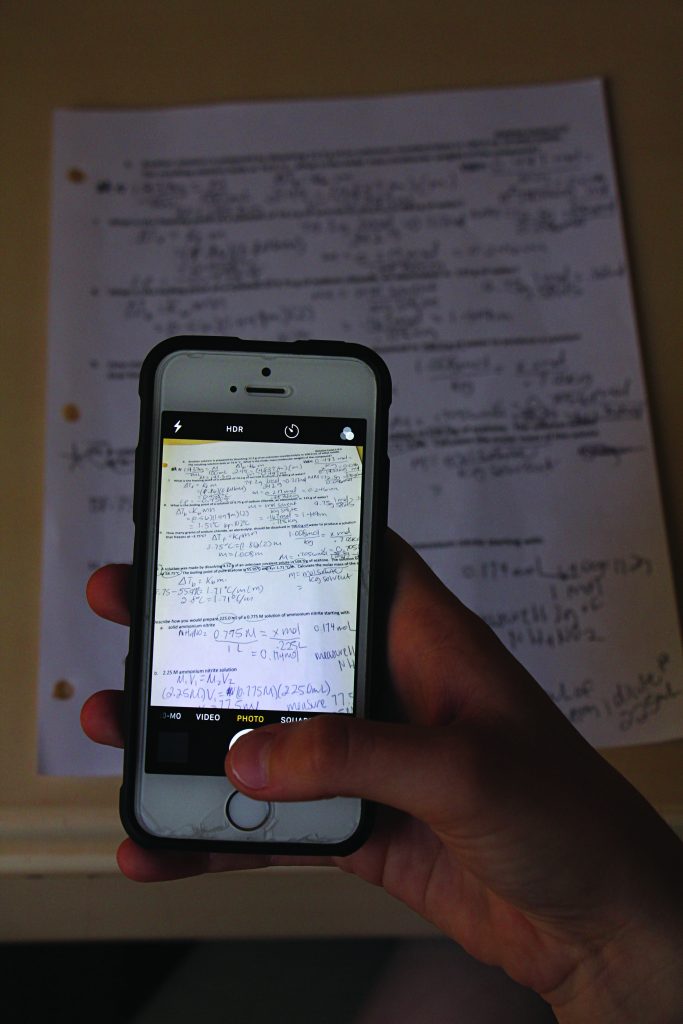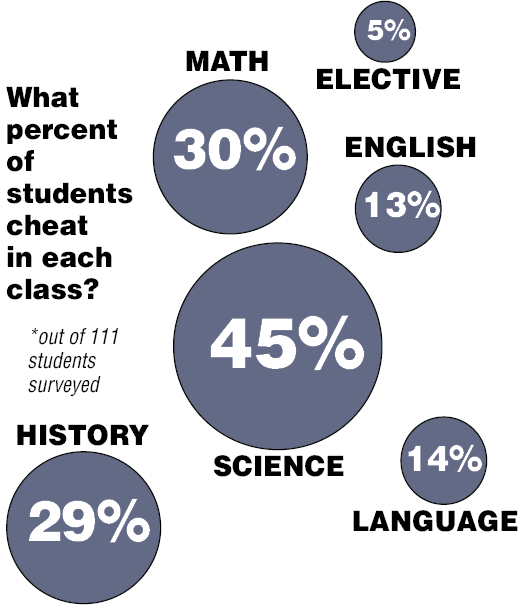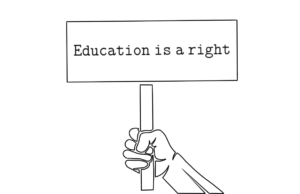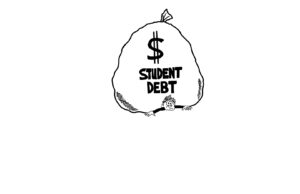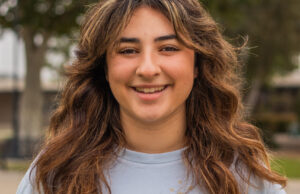Cheating: the hidden truth
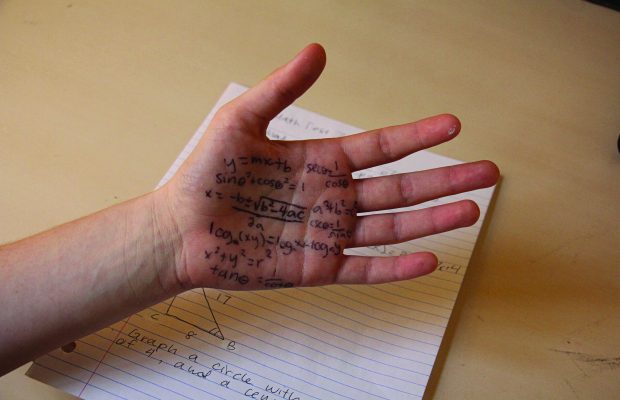
What defines cheating?
Interviewer: What do you define as cheating?
Student: I don’t know what cheating is, honestly.
Interviewer: Would you say that you cheat?
Student: Yeah.
Interviewer: Do you consider yourself a cheater?
Student: No, I don’t.
Students often brush off the idea of being a cheater, believing they are not affiliated with the term. However, cheating can be so ubiquitous on campus that many do not consider the moral implications. According to Conejo Valley Unified School District (CVUSD) policy, academic dishonesty is defined as “a deliberate attempt to disrupt the learning process by misrepresenting another’s work as one’s own.” Glancing at another student’s test, asking for answers on individual assignments, looking up answers online, or plagiarizing someone else’s writing are all district-specified forms of cheating. Those who let others cheat off of them, whether they provide images of homework or the answers for a test, are also considered cheating offenders.
In general, educators and teachers follow this official definition of cheating rigidly.
“I define cheating as anything that is not your own work, so copying information that’s not yours, working together with somebody when it explicitly says that it’s your own assignment,” Brianna Harris, biology teacher, said. “It’s your own assignment, it needs to be your individual answers.”
Some students, however, may have a murkier interpretation of cheating, as some actions seem ethically reasonable.
Jackson Cook*, senior, defines cheating as “any action you take to do better on an assessment than you would be able to do naturally without any assistance.” However, he added, “Our society has redefined what it means to cheat and we tend to normalize the action…today it’s such a common thing that we morally don’t disagree with it anymore.”
Deborah Dogancay, IB coordinator and science teacher, agrees in noticing a trend in the justification of cheating. “(Cheating has) become so commonplace, that unfortunately I think students have become numb to it,” Dogancay said. “They just laugh it off.”
Although there are varying opinions on what cheating truly is, the underlying factor is that it continues to occur in the classroom, breaking school policies.
Group chats, Scantrons, and sneaky business
Academic dishonesty comes in many different shapes and forms. Although some students do face the administrative consequences of cheating when caught in the act, others have also developed ways to avoid teacher awareness of their actions.
A common form of what the district defines as cheating concerns homework. Although it is difficult to catch and a generally more relaxed area, copying an assignment, sending a picture to a friend or even looking up answers online all fall under academic dishonesty.
Other classwork assignments can also involve cheating, such as students working together when they shouldn’t be. Harris recalls a time when she “caught students cheating through FaceTime…that’s how they were able to collaboratively work together on an assignment that was individual, and really it was one student let another student copy their work through FaceTime.”
Indeed, advancements in technology, including FaceTime as well as private messaging, online databases and Q-&-A sites, have contributed to the issue of academic dishonesty by offering students new modes to find and spread answers. “Students can text each other information, and once it’s out there, it’s out there,” Harris said. “Once one student has it, you don’t have control over who gets it next, because you’ve already sent it out, and then it’s out.”
Although quizzes and tests are administered in more stringent environments than homework and classwork, they too are not immune to students’ cheating methods. Tiffani Coull, history teacher, recalls a group chat that disbanded, by her force, earlier this year, in which students would collaborate to get answers on daily quizzes she administers. “The A days would put on the group chat all the answers to the reading reviews so the B days would get it right and then when we switched at the semester, the B day did it,” Coull said.
Aidan Anderson*, senior, recalled a class wide cheating scandal on his final science exam. While some athletes in the class managed to convince the teacher to sign yearbooks, Anderson searched through the teacher’s desk to take pictures of each page of the three versions of the final test, which he texted to the whole class. The plan was complicated by a student who revealed the situation to the teacher. Although the pictures were deleted to avoid conflict, some students were able retain them through another class member and re-circulate them.
Thinking back to the science final, Anderson described it as “the perfect murder. I was so proud of it, but then it’ll never happen again because I don’t think I’ll ever have a teacher who will sign yearbooks for 30 minutes.”
Susan Baker*, sophomore, considers herself to be a relatively avid cheater who has not yet faced administrative consequences. In a current class, during tests, Baker admitted to swapping multiple choice Scantron sheets with two neighboring students.
“When we don’t know the questions we circle the numbers that we have and then we switch papers and then write the answers if we think we know them,” Baker said. After completing the cycle between all three students, papers are returned to the original student and “you erase the pencil mark from the actual test so it won’t seem suspicious, but even if you don’t, it’s so bizarre that the teacher would never expect us to do it.”
Baker feels that she would have a disadvantage if she didn’t cheat, simply because she “would have to work a lot harder… because everyone is cheating.”
Reasons for Cheating
By the time students enter high school, each and every individual has been taught that cheating is immoral and will be dealt with through disciplinary action. However, as one steps into the halls of high school, those lessons begin to fade away in light of new competition and stress. The question that stands is, why do students cheat when they know it is wrong? Several teachers believe that it is a direct result of the pressure and competition between students.
Acting under the expectations of a modern education, including going to a good college by attaining good grades and participating in multiple extracurriculars, students are driven by the cutthroat competitiveness created amongst peers. Coull explained her belief in how “good kids who normally wouldn’t cheat” are “driven to cheat because of societal expectations.”
“College seems to be getting more and more competitive, it’s harder and harder to get in,” Dogancay agreed. “I don’t know if it’s pressure that society puts on kids, or teachers, or parents, or just students themselves… but there’s so much pressure on ‘I have to get into the best college.”
Not achieving perfect scores in school has led to students acting out of desperation. Harris believes the competitiveness of college “leads to (students) feeling like they have to have that A, which causes stress and pressure, and that can lead to cheating.”
Students themselves agree to responding to feelings of pressure through academic dishonesty. Maria Luciani, senior, believes that peers in her grade “have amazing grades and aren’t getting into schools. (There is) crazy pressure to (be) … able to nail it to get 100 percent.”
Ella Hall*, senior, recalls when she cheated in middle school. Her reasoning included both the pressure to do well and the idea that cheating was the norm. “I cheated because I thought everyone was doing it and I wanted so badly to score high that the means to getting to that ideal end no longer mattered to me,” she said.
Cook said he felt a source of pressure to do well not only arising from college expectations, but also from the expectations of teachers themselves, motivating him to search up answers to a Spanish vocabulary quiz during a bathroom run. “I felt like if I didn’t get a perfect score on that test I would let the teacher down and I wanted to (maintain my grades),” he said. “There are settings where teachers’ need for students to succeed lead to students taking these actions.”
On the other hand, some students feel that teachers have created a source of pressure not by having high expectations, but by conducting their classes in an unrealistic manner. Luciani believes that “sometimes teachers really give an unnecessary amount of homework. And you just got home at 6 o’clock and went volunteering, had dinner, start your homework at 9 and have like 6 hours of homework. And people are like ‘which one can I do the least for’, which is unfortunate, because you’re not learning anyways.”
Baker also justified that her collaborative cheating in exchanging Scantron sheets was not necessarily her fault; she felt that the class cultivated an environment in which “no one knows anything” and a realistic balance needed to be maintained.
The consequences
To dissuade and punish academic dishonesty, CVUSD policy has established rules for two infractions for students in grade 9-12. The first offense will result in a two-year Academic Dishonesty Contract signed by the student, parents, and an administrator, while the second offense in any class within the two-year period will result in the student being drop/failed from the class and enrolled in study hall instead.
In all science classes at NPHS, students review and sign a specific academic dishonesty contract at the beginning of the class. If Harris catches a student cheating, “I first speak to the students, all students involved, then I call their parents, and I speak to them, then I write a referral and give it to administration, and then they deal with the consequences from their end,” she said. “Students will take a zero on any assignment that they are caught cheating on.” Dogancay, among other teachers, adhere strictly to the district policy.
Some believe these consequences are too severe.
“I think that the issue is that oftentimes cheating goes directly to administration, but there should be more discretion to the teachers and the staff who had to deal with a problem in their class,” Cook said. “We should have more leniency about how severe their punishment should be because they can vary with the value of assignments.”
Other students disagree and prefer to trust the administrative justice system. “I just know of a lot of cases where people have cheated or been in a gray area and admin or teachers made another deal with the kid instead of writing them up because of the length of the paperwork, which I think is a fault in the system,” Hall said.
Whether academic dishonesty has immediate consequences or not, some long term effects may still persist.
“What (cheating) does is it falsely elevates your grade,” Coull said. “If everybody in your class has falsely elevated grades, then when you go to get into college, you have more competition. And I know it sounds cutthroat, but you have to be trying to rise above your classmates.”
The problem, as seen by many students, isn’t that they cheat because they want to, they cheat because they feel like it is the only way to survive in an increasingly competitive world. The meaning and process of education has been transformed over the years to be interpreted in an entirely new way by both teachers and pupils. “Students are compelled to cheat because education prioritizes grades over actual learning,” Baker said. “Our grades aren’t actually a measure of what we learn.”

